So I made a game like Happy Glass and it's working fine, but sometimes when the level is completed, the screen to go to the next level appears and then immediately dissapears and u cant press next level
Here it's a picture for reference:
This screen appears and dissapears in a fraction of a second so you cant click to go to the next level.
I have a function that invokes the next level in a particular time, i tried to change the time but didnt work.
The finish line has this code attached to it ( line that makes you go to next level):
using System.Collections;
using System.Collections.Generic;
using UnityEngine;
using UnityEngine.SceneManagement;
public class GlassFill : MonoBehaviour {
int trigCont;
GameManager gm;
int Star;
// Use this for initialization
void Start () {
gm = FindObjectOfType<GameManager>();
}
// Update is called once per frame
void Update () {
}
void OnTriggerEnter2D(Collider2D col)
{
if (col.gameObject.tag == "DynamicParticle")
{
if (trigCont == 0)
{
transform.parent.GetChild(0).GetComponent<SpriteRenderer>().sprite = gm.SurpriseGlass;
}
col.gameObject.tag = "InGlassWater";
col.gameObject.GetComponent<Rigidbody2D>().gravityScale = .3f;
col.gameObject.GetComponent<Rigidbody2D>().velocity = col.gameObject.GetComponent<Rigidbody2D>().velocity /4;
trigCont++;
if (trigCont > 50)
{
if (trigCont == 51)
{
if (Mathf.FloorToInt(gm.PenCapacity.value * 100) > 75)
{
Star = 3;
}
else if (Mathf.FloorToInt(gm.PenCapacity.value * 100) > 50)
{
Star = 2;
}
else if (Mathf.FloorToInt(gm.PenCapacity.value * 100) > 25)
{
Star = 1;
}
print(Star + "star");
transform.parent.GetChild(0).GetComponent<SpriteRenderer>().sprite = gm.HappyGlass;
Camera.main.GetComponent<AudioSource>().Play();
Invoke("nextScene", 0);
CancelInvoke("Check");
for (int i = 0; i < Camera.main.transform.childCount; i++)
{
if (Camera.main.transform.GetChild(i).GetComponent<ParticleSystem>() != null)
{
Camera.main.transform.GetChild(i).GetComponent<ParticleSystem>().Play();
}
}
}
}
else
{
CancelInvoke("Check");
Invoke("Check",5);
}
if (trigCont > 60)
{ //You can write a function over here if you want to give a star according to glass fill
print("two star");
}
if (trigCont > 70)
{
print("three star");
}
}
}
void Check()
{
SceneManager.LoadScene(SceneManager.GetActiveScene().buildIndex);
}
void nextScene()
{
PlayerPrefs.SetInt((SceneManager.GetActiveScene().buildIndex).ToString(), 1);
PlayerPrefs.SetInt("Star" + SceneManager.GetActiveScene().name, Star);
gm.LevComp.SetActive(true);
if (Star > 2)
{
gm.LevComp.transform.GetChild(0).gameObject.SetActive(true);
gm.LevComp.transform.GetChild(1).gameObject.SetActive(true);
gm.LevComp.transform.GetChild(2).gameObject.SetActive(true);
}
else if (Star > 1)
{
gm.LevComp.transform.GetChild(0).gameObject.SetActive(true);
gm.LevComp.transform.GetChild(1).gameObject.SetActive(true);
}
else if (Star>0)
{
gm.LevComp.transform.GetChild(0).gameObject.SetActive(true);
}
}
}
